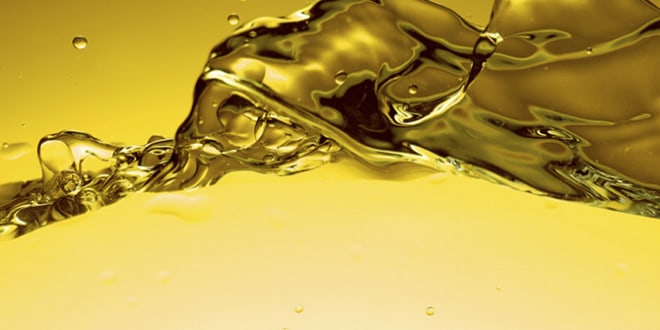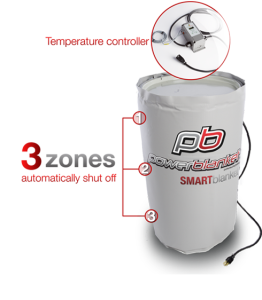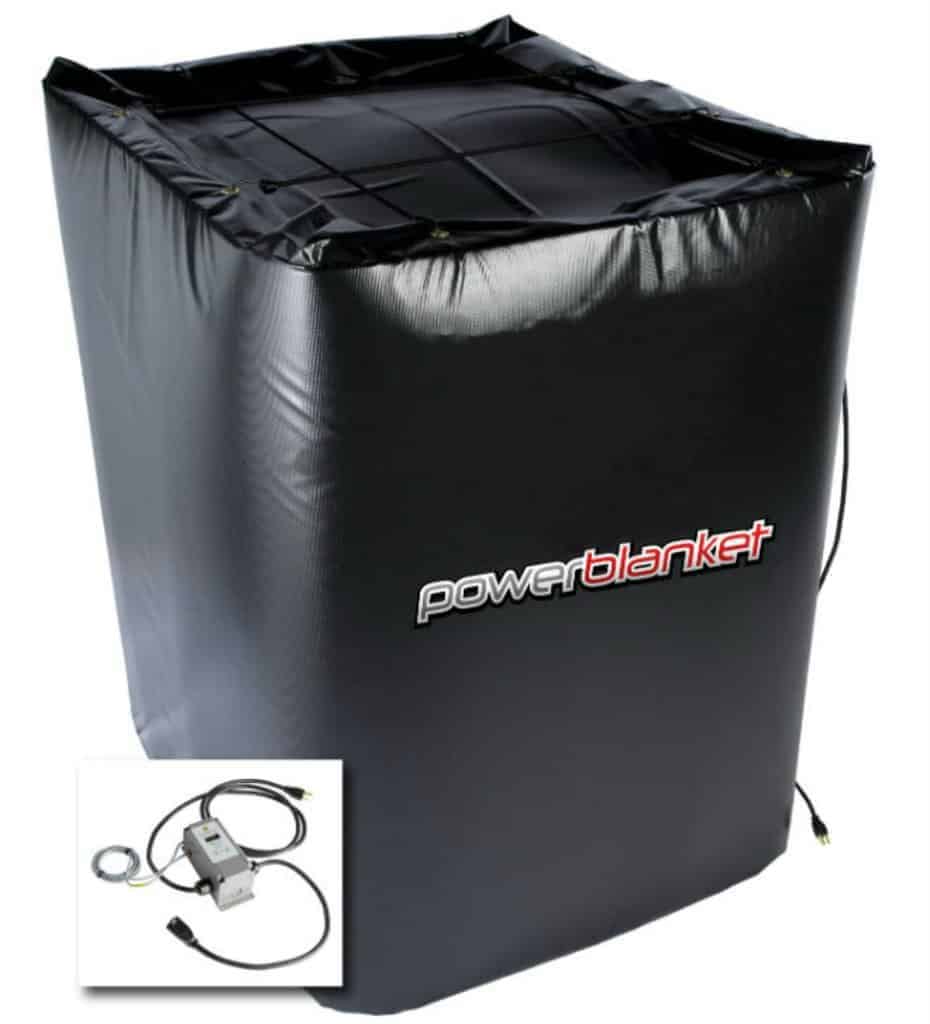 Hydraulic oil is an essential component to your equipment. Cold or freezing temperatures can alter the functionality of hydraulic oil. When this happens, you run the risk of damaging your expensive equipment. What are the most effective ways to winterize vehicles and equipment that use hydraulic oil?
Hydraulic oil is an essential component to your equipment. Cold or freezing temperatures can alter the functionality of hydraulic oil. When this happens, you run the risk of damaging your expensive equipment. What are the most effective ways to winterize vehicles and equipment that use hydraulic oil?
Preventing Hydraulic Oil from Thickening
There are a few ways of winterizing vehicles and preventing oil in hydraulic drive systems from thickening or freezing, all of them involving heat. However, some methods are more effective and safer than others.
Powerblanket heating blankets provide customizable and efficient heating for all your hydraulic fluid needs. With remote operation capability and unparalleled technology for even heat distribution, Powerblanket ensures optimal viscosity and temperature control.
Heat: It’s a love-hate relationship
Heat is essential in a hydraulic system. In fact, the system itself generates a notable amount of heat already. When hydraulic fluid is pumped from a high pressure to a low pressure without being used for anything, it creates heat. While this would seem like an advantage when operating a hydraulic system in a cold environment, it’s actually an indicator of problems within the system. Heat in a hydraulic system is usually the result of something going wrong and needs attention immediately, such as internal leakages in valves, flow restriction or slippage in pumps. For these reasons, a heat source to keep hydraulic fluid from freezing needs to be externally mounted so as to not get in the way of problem indicators.
Hydraulic Fluid Freezing Point
Ensuring a hydraulic system is warm enough to use is essential for safe and efficient operations. Hydraulic fluid freezing point is -10° F, below which renders the fluid unusable. Even when temperatures are above the freezing point, the viscosity of the oil can increase in thickness, making it harder to use.
Optimal functionality is dependent on the oil maintaining temperatures within a specific range depending on the type of hydraulic oil your vehicle and equipment may use. A heat source for your hydraulic fluid isn’t necessary every day of the year in most cases, but knowing when to pull out your heat source will help you stay ahead of problems that arise from working in cold weather.
When to Winterize
It’s important to winterize your equipment before the temperature drops below freezing. At that point, moisture is trapped in its solid state in piping and can interrupt flow of fluids. Preventing ice buildup requires a heating solution that will also keep your hydraulic fluids flowing without influence from freezing temperatures.
There are a few things to consider when determining the most effective method of providing heat to your hydraulic system when winterizing:
- How safe is the solution?
- How much time is required to monitor the heating source?
- How much power and energy is consumed with the solution?
Heating Hydraulic Oil
Heating hydraulic oil to maintain optimal temperatures is a great solution. However, keeping the fluid above -10° F is just as import as preventing fluid from reaching temperatures too high to operate with.
According to Flodraulic, overheating fluids can have disastrous effects on a hydraulic system:
“Heat has many detrimental effects on the hydraulic system components. But the most detrimental effect of heat is the breakdown of the oil. Oil temperatures should be maintained at 120°F for optimum performance, and should never be allowed to exceed 150°F. At high temperatures, oxidation of the oil is accelerated. This oxidation shortens the fluid’s useful life by producing acids and sludge, which corrode metal parts. These acids and sludge clog valve orifices and cause rapid deterioration of moving components.
“The chemical properties of many hydraulic fluids can change dramatically by repeated heating/cooling cycles to extreme temperatures. This change or breakdown of the hydraulic media can be extremely detrimental to hydraulic components, especially pumping equipment.”
Your heating solution of choice needs to give you complete control over how hot your hydraulic fluids will get. Staying in command helps mitigate temperature fluctuations and overheating.
Heating Blankets
Heating blankets are the best way to maintain viscosity in your hydraulic fluid. These blankets can be designed to perfectly align the size and temperature with the needs or your equipment. Most importantly, heating blankets are able to maintain consistent temperatures and provide insulation to prevent heat seepage. An added bonus is that heating blankets are easy to set up and are removable for storage during warmer months.
Reasons to use a Heating Blanket
Why use a heating blanket to warm up hydraulic oil? The reasons speak for themselves:
- Safe and effective heat: unlike other heating options such as open flame or heating coils, heating blankets ensure heat is transferred directly to your material without the potential for combustion.
- Highly customizable: heating blankets can be designed to fit in the exact shape and size needed.
- Maintains optimal temperatures: guaranteed consistent, even flow of heat means less time spent adjusting temperature levels.
- No need for monitoring: heating blankets can be controlled remotely and have no need to be monitored.
- Insulated blankets use less energy: heating blankets allow for less energy use due to layers of insulation.
Heating Blankets from Powerblanket
Heating blankets by Powerblanket are powered by Greenheat patented technology which has revolutionized effective and even heat spreading. They are effective in every industry, from concrete curing in construction to agriculture heating solutions. Heating blankets are also widely used in the trucking industry for DEF tank heaters.
With several options available for heating hydraulic oil, finding the right solution for your equipment is essential. Blanket heaters by Powerblanket are a great solution for your hydraulic oil needs. For more information, call Powerblanket at 855.993.6294 or email [email protected].
Frequently Asked Questions
How cold is too cold for hydraulic fluid?
Hydraulic fluid becomes too cold to function properly when temperatures drop below its freezing point of -10°F, causing it to thicken and potentially damage hydraulic systems.
How do you keep hydraulic lines from freezing?
To prevent hydraulic lines from freezing, store them in a dry, clean indoor area and use heating solutions like Powerblanket heating blankets to maintain optimal fluid viscosity.
What happens when hydraulic oil gets cold?
When hydraulic oil gets cold, it thickens, increasing in viscosity, which can reduce performance and potentially damage hydraulic system components.
What is the freezing point of transmission fluid?
Transmission fluid generally does not freeze under typical conditions, but it can become too thick to function properly at extremely low temperatures, similar to hydraulic fluid.
Powerblanket's custom tank heaters provide freeze protection, making your business more sustainable and efficient.



